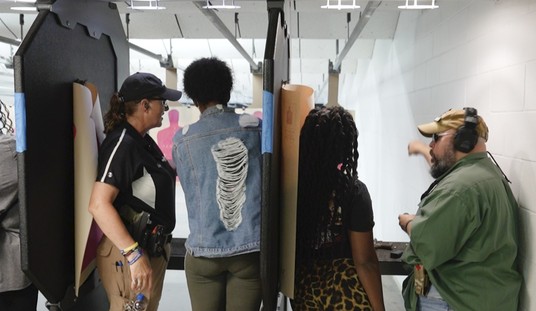As Illinois’ ban on so-called assault weapons and “large capacity” magazines is being challenged in multiple lawsuits (including a hearing in federal court last week, gun owners across the state are also being subjected to new rules and regulations that aren’t generating as many headlines but are still infringing on their civil rights.
On today’s Bearing Arms’ Cam & Co, Illinois Carry’s Valinda Rowe joins me to highlight a couple of issues that have popped up on her radar in recent weeks, including a potential abuse of the state’s “clear and present danger” statute.
Under Illinois law, your Firearms Owner ID card (required to legally maintain possession of a firearm in your home) can be revoked without notice or a chance to defend yourself if someone files a “clear and present danger” report with the Illinois State Police. While it’s possible to appeal that finding after the fact, gun owners typically must subject themselves to an extensive psychological or psychiatric evaluation in order to present “expert” evidence that they do not pose a threat to themselves or others.
The lack of due process involved is troubling enough, but Rowe disclosed that Illinois Carry is hearing from a number of gun owners that the FOID Card Review Board, which was set up to hear appeals of FOID card revocations, is now routinely denying those appeals even if the applicant has been given a clean bill of mental health from a psychologist or psychiatrist. All it takes for a judge to prohibit someone from exercising their Second Amendment rights is a “preponderance of the evidence”; an incredibly low bar that just means the judge has found it more likely than not that someone is a danger.
Rowe tells Bearing Arms that litigation is a possibility here, and both Illinois Carry and the Second Amendment Foundation are asking gun owners who’ve been subjected to this bureaucratic deprivation of their rights to contact them; at this point for information-gathering purposes but with the possibility of becoming a plaintiff as well.
Unfortunately, this isn’t the only issue involving the Illinois State Police that Rowe has been contending with in recent days. She’s also been taking action against what appears to be a backdoor attempt to establish an ammunition purchase registry by the ISP, and thankfully she’s already seen some success in getting the agency to back down.
As Rowe explains, in order to legally buy ammo in Illinois you have to submit a valid FOID card to the seller. For years, retailers would look to make sure the card hadn’t expired before completing the sale, but not long ago the state changed up the FOID cards, which are now absent any visible expiration date. Now retailers have to navigate an online portal run by the Illinois State Police and query the status of each ammunition purchaser. The problem is that the ISP added an additional hoop for retailers a couple of weeks ago; once they’ve verified the FOID card in question is still valid, the state police now quizzed the retailer about what caliber of ammunition was being purchased.
When Rowe was made aware of what the ISP was doing, she immediately began combing over state statutes and regulations but could find no authorization for the state police’s actions. Rowe’s next step was to contact the Illinois State Police directly and ask the agency to provide the statutory authority for its new ammo registration scheme. A few days after making that request Rowe received an email informing her that the portal had been updated. Lo and behold, the dropbox that listed a wide variety of calibers had been changed, with only .50 caliber ammunition remaining, likely because Illinois has banned the sale of .50 BMG to most residents, with a handful of exceptions including law enforcement.
Rowe sent a follow-up email to the ISP asking that even that option be clarified, since there are still some .50 caliber rounds that are legal for purchase, like 500 S&W and .50 AE. Hopefully, the additional change will soon be made, and kudos to Valinda for her grassroots activism. As she told me, if you see something troubling, say something to a Second Amendment organization. Even in a state as hostile to the Second Amendment as Illinois is these days, positive change can still be made and government agencies can still be called out for abusing their authority once 2A advocates become aware of these abuses and infringements to our fundamental right to keep and bear arms.









Join the conversation as a VIP Member